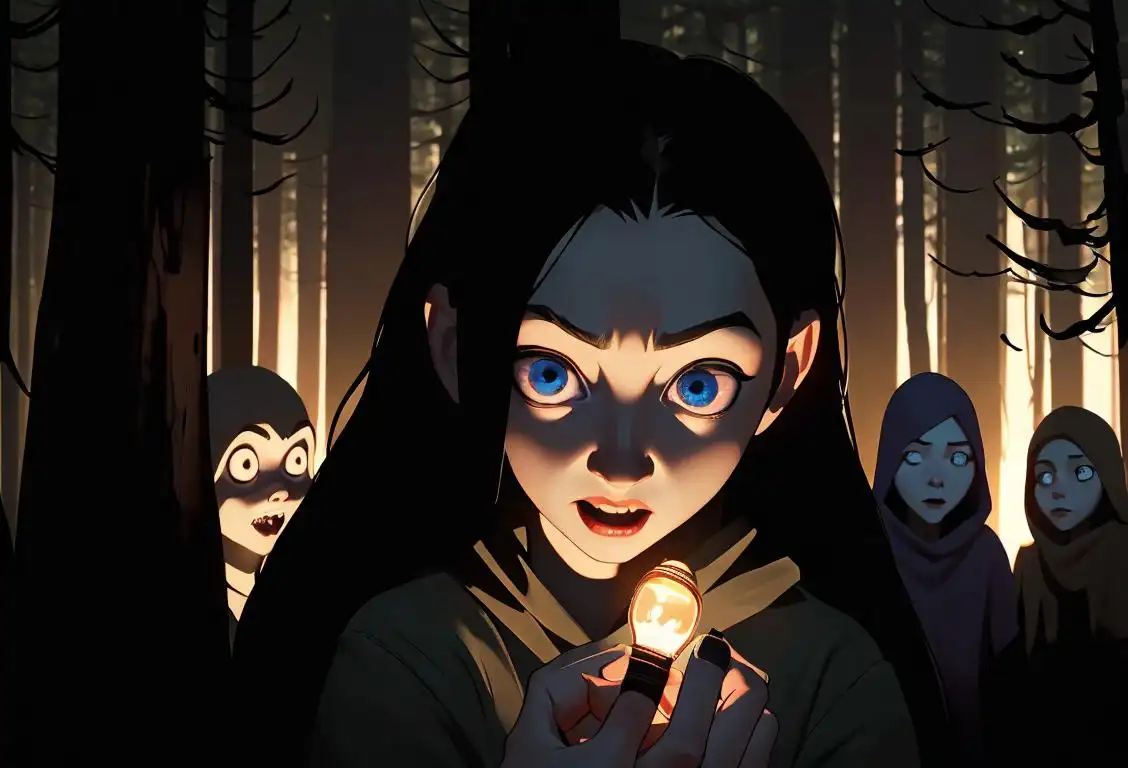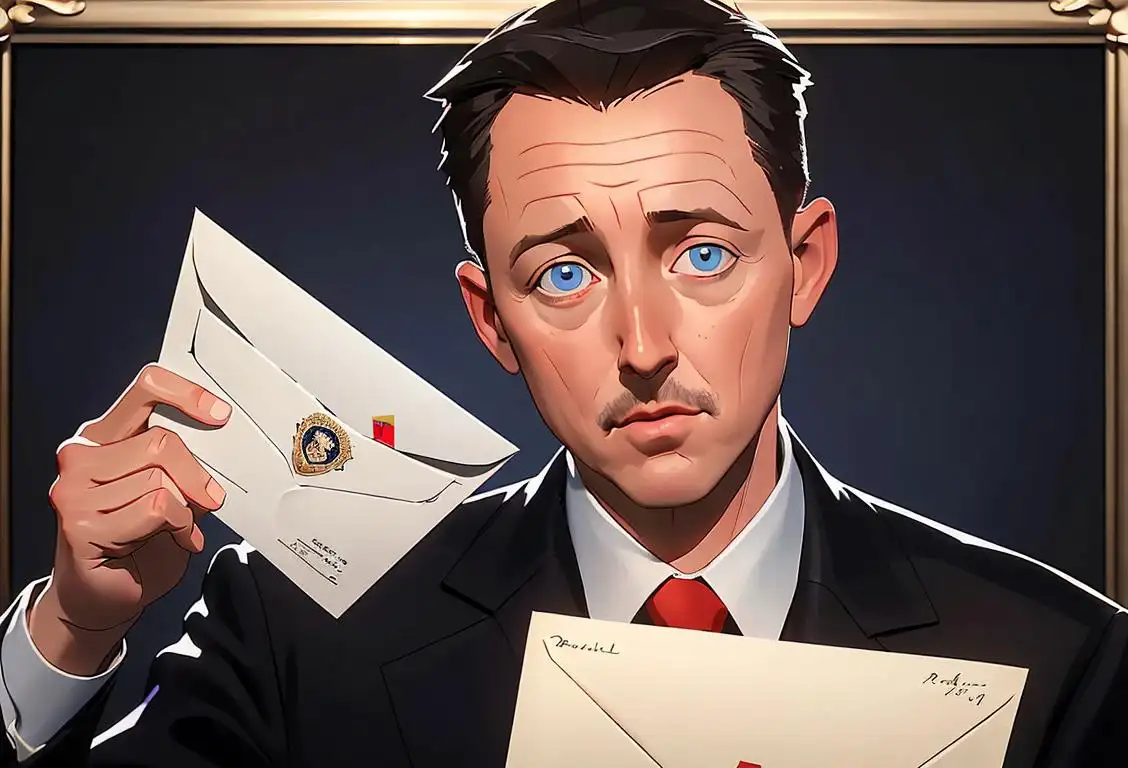National Editor Appreciation Day

Welcome to WhatNationalDayIsIt.com, where we uncover the fascinating history behind all the quirky holidays celebrated around the world! Today, we're diving into the world of editors as we celebrate National Editor Appreciation Day.
When is Editor Appreciation Day?
It's national editor appreciation day on the 24th November.
The Internet History of National Editor Appreciation Day
Have you ever noticed how magically polished and error-free the articles you read online are? Well, you have editors to thank for that! National Editor Appreciation Day is a special day dedicated to recognizing the hard work and dedication of these unsung heroes of journalism and content creation. Let's take a journey through the internet history of this day.
In the vast digital landscape, the need for skilled editors became increasingly apparent as the demand for accurate and well-crafted content rose. On this day, we celebrate the vital role editors play in shaping, refining, and perfecting the words we read every day.
While the exact origins of National Editor Appreciation Day remain a mystery, it gained prominence in the online community around November 24, 2016. On this day, social media platforms were abuzz with messages of gratitude and admiration for editors.
Editors diligently proofread, fact-check, and fine-tune articles, ensuring clarity, accuracy, and engaging readability. Without their watchful eyes, we'd be subjected to a deluge of typos, grammatical errors, and even the occasional nonsense. It's high time these linguistic superheroes got some recognition!
So, how can you show your appreciation for editors on this day? Well, for starters, if you encounter an editor-approved piece of content, why not share it on your social media channels with a shout-out to the editor responsible? Or perhaps, send a heartfelt email or even a handwritten note expressing your gratitude for their dedication and attention to detail.
Did You Know?
Did you know that editors possess an uncanny ability to spot even the tiniest of errors amidst a sea of words? They have an eagle-eyed focus that allows them to zero in on misplaced commas, misspelled words, and other sneaky grammatical mistakes. It's like having a human spellcheck embedded in your computer!
History behind the term 'Editor Appreciation'
1930
Birth of modern editing
In the year 1930, the modern definition and concept of editing were born. Prior to this time, editing primarily referred to the process of preparing a written work for publication, including correcting errors and improving readability. However, with the rise of the film industry and the advent of sound in movies, the role of an editor expanded to include the manipulation of visual and audio elements to create a complete cinematic experience. This shift in understanding laid the foundation for recognizing and appreciating the work of editors in various fields.
1800
The Birth of Print Media
In the early 19th century, print media became increasingly popular, with newspapers and magazines being widely circulated. This marked the beginning of the role of editors who were responsible for curating and overseeing the content of these publications, ensuring accuracy and maintaining certain standards.
1914
The Birth of Modern Editing
In 1914, the term 'editor' took on a new significance with the widespread adoption of the modern editing process. As the demand for quality publications grew, the role of the editor became pivotal in shaping content, ensuring accuracy, and improving readability. This marked the birth of modern editing as we know it today.
1789
Emergence of the modern newspaper
The term 'editor' first gained prominence in 1789 with the emergence of the modern newspaper. The establishment of newspapers as a reliable source of information led to the need for individuals responsible for selecting and organizing the content. These individuals came to be known as 'editors', a term derived from the Latin word 'editus', meaning 'published'. The role of an editor gradually evolved to include not only selecting and arranging news articles but also providing a unique editorial perspective.
1831
Emergence of the Penny Press
The penny press emerged in the United States in the early 1830s, making newspaper circulation more affordable for the masses. As a result, the demand for news increased, leading to the expansion of the publishing industry. Editors played a crucial role in selecting and organizing news stories to capture readers' attention.
1970
National recognition
By the 1970s, the importance of editing had become even more evident in the world of film and television. Influential editor and filmmaker Walter Murch, known for his work on movies like 'Apocalypse Now' and 'The Godfather,' raised the bar and transformed editing into a respected art form. This led to the establishment of national events and initiatives dedicated to honoring the contributions of editors across various media platforms. The term 'editor appreciation' started gaining recognition and popularity during this time, as the public became aware of the crucial role editors play in shaping narratives and evoking emotions.
1947
The Emergence of Editorial Appreciation
By 1947, the importance of editors in the publishing industry had become widely recognized. Publishers, authors, and readers alike acknowledged the significant contributions of editors in refining written work. This led to the emergence of 'editorial appreciation' as a term used to express gratitude for the tireless efforts of editors in making literature more accessible and engaging.
1860
Recognition of the editor's influence
In the mid-19th century, the influence of newspaper editors grew significantly. They were seen as gatekeepers who had the power to shape public opinion. The idea of 'editor appreciation' began to develop as people recognized the importance of the editor's role in filtering and presenting the news. Editors became key figures in the dissemination of information, and their work started to be recognized and appreciated.
1994
An award for editors
The year 1994 marked a significant milestone for editors with the inception of the American Cinema Editors (ACE) Eddie Awards. This prestigious award ceremony aimed to celebrate the achievements of editors in the film industry. The establishment of the ACE Eddie Awards further elevated the status of editors and solidified the term 'editor appreciation' as an acknowledgment of their creative input and technical expertise. The event and subsequent recognition inspired similar award ceremonies and acknowledgments in other countries, further emphasizing the global appreciation for editors.
1965
Professional Acknowledgment Takes Root
In 1965, 'editor appreciation' gained further traction as professional associations dedicated to promoting the craft of editing began to form. These organizations aimed to recognize the vital role editors play in maintaining the integrity of written works. They sought to foster a sense of community among editors, supporting their continuous professional development and elevating the status of editing in the publishing industry.
1908
National recognition with Editor Appreciation Day
Editor Appreciation Day was first officially celebrated in 1908. This special day was dedicated to acknowledging the tireless efforts of editors in shaping public discourse and keeping the public informed. It aimed to raise awareness about the significant contributions made by editors to the media landscape. It also highlighted the crucial role editors play in upholding journalistic standards and maintaining the integrity of news reporting.
1840
Role of Editors as Gatekeepers
By the mid-19th century, newspapers had become a primary source of information. Editors were not only responsible for content selection but also served as gatekeepers, deciding what news or opinions were fit for publication. Their influence on shaping public opinion grew, and their work started receiving recognition and appreciation.
1878
Editorial Columns and the Editor's Voice
Editorial columns gained popularity in newspapers during the late 19th century. Editors began expressing their opinions on various social, political, and cultural issues, solidifying their role as influential figures in shaping public discourse. Readers connected with the editor's voice and started appreciating their unique perspectives.
1992
National Editor Appreciation Day
The culmination of editor appreciation efforts came in 1992 when 'National Editor Appreciation Day' was established. This special day, celebrated annually on [date], is dedicated to honoring the contributions of editors across various media platforms. It serves as a reminder to recognize and express gratitude for their invaluable role in shaping the written word.
2006
Online communities and Editor Appreciation Day
With the advent of the internet and the rise of social media, online communities dedicated to the appreciation of editors began to flourish. In 2006, the first Editor Appreciation Day was observed online, providing a platform for people to express their gratitude and admiration for the unsung heroes behind the scenes. This grassroots movement allowed individuals from various creative industries to come together and recognize the invaluable contributions of editors in storytelling, journalism, publishing, and numerous other fields. Editor Appreciation Day continues to be observed annually and serves as a reminder of the impact editors have on our daily lives.
1990s
Digital era and evolving role of editors
The advent of the digital age in the 1990s brought significant changes to the field of journalism. With the rise of online news platforms and social media, the role of editors expanded to include fact-checking, debunking misinformation, and ensuring ethical reporting. The term 'editor appreciation' took on a broader meaning as the public recognized the challenges editors faced in navigating the rapidly evolving media landscape.
Present day
Continued appreciation and recognition
Today, 'editor appreciation' remains a relevant and important concept. With the proliferation of news sources and the spread of fake news, the role of editors in ensuring accurate and reliable information has never been more crucial. Journalistic organizations and individuals continue to celebrate editor appreciation as a way to express gratitude for their valuable work in shaping public opinion and maintaining journalistic integrity.
Present
Ongoing Recognition and Gratitude
Today, editor appreciation is an integral part of the publishing industry. Publications, writing communities, and individuals continue to celebrate the dedication, skill, and passion of editors. Through various events, social media campaigns, and initiatives, the importance of editors and their invaluable contributions is continually highlighted, fostering a greater understanding and appreciation for the art of editing.
1920
The Golden Age of Magazines
In the early 20th century, magazines became the primary medium for lifestyle, fashion, and cultural coverage. Editors played a crucial role in creating engaging content and setting trends. The public developed a greater appreciation for the editor's ability to curate and present diverse topics in a visually appealing and informative manner.
1940
Establishment of Editor's Guilds
In the mid-20th century, editor's guilds and associations began to form to promote and protect the interests of editors. These organizations worked towards recognizing the profession of editing and fostering a sense of community among editors. Editor appreciation grew as the industry saw the importance of their work.
2000
Digital Media and Non-Traditional Editors
The rise of the internet and digital media dramatically transformed the publishing landscape. With the advent of blogging and social media platforms, non-traditional editors emerged, such as video editors, podcast producers, and influencers. Editor appreciation expanded beyond traditional mediums and encompassed a wider range of digital content creators.
Present
A Day to Appreciate Editors
In recognition of the immense contribution of editors to the media and publishing industry, 'Editor Appreciation Day' was established. This special day celebrates and acknowledges the dedication, skill, and creativity of editors who shape our knowledge, entertainment, and understanding of the world.
Did you know?
Did you know that editors possess an uncanny ability to spot even the tiniest of errors amidst a sea of words? They have an eagle-eyed focus that allows them to zero in on misplaced commas, misspelled words, and other sneaky grammatical mistakes. It's like having a human spellcheck embedded in your computer!Tagged
awareness nsfw funFirst identified
24th November 2016Most mentioned on
24th November 2016Total mentions
4Other days
Children Day
Nightmare Just Day
Intelligence Richard Grenell Has Declassified A Mysterious Inauguration Day
Happiness Day
Awareness Day
Kisses Day
Opposite Day
One Day
Stormy Daniels Day
These Day









